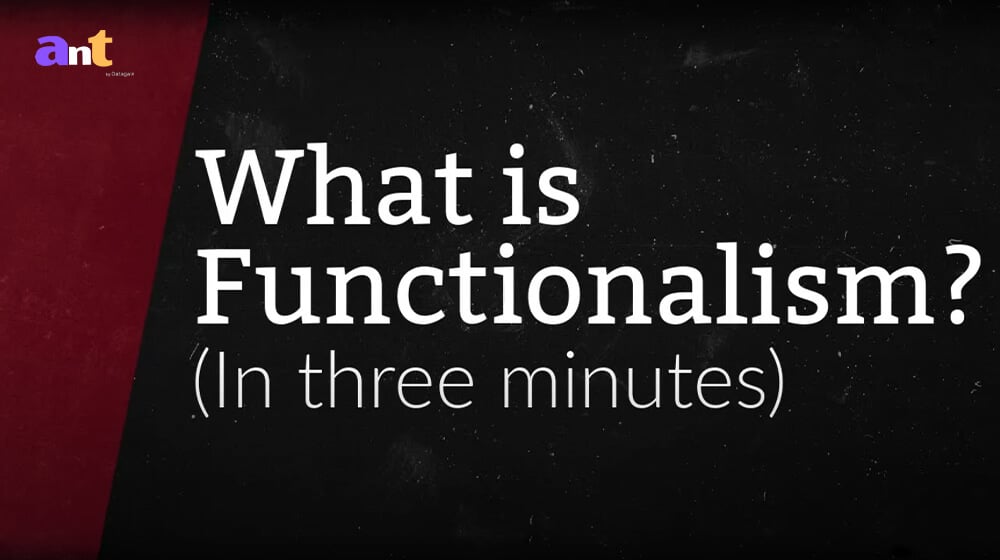
Home » Transcript Library » What is Functionalism?
What is Functionalism?
Historically speaking, we can trace functionalism back to the late 19th century in particular to the French Theorist Emile Durkheim (1858-1917) and the concept then emerged later in the early 20th Century as a major theoretical lens that dominated some aspects of the social sciences all the way up to the 1960s.
The thing is, a Functionalism itself is not so much a theory as it is a macro-oriented method of analysis a way of looking at a society in its entirety and theorizing the role that social institutions play in maintaining social order. In other words, the inherently conservative function, the things like marriage, gift exchange or religious beliefs play in contributing to the long-term survival and stability of a society.
To pick one common example, a functionalist reading of something like funerary practices, the ways the different societies dispose of their dead wouldn’t focus on cultural differences or unique religious rituals, instead, it would look at funerals as a mechanism that prevents the breakdown of social order. For example, on some level every society has to dispose of its dead in order to prevent the spreading of disease or you could argue that funerals provide ritualized spaces in which people can collectively grieve, which in turn promotes healing and affirms the social importance of religious and civic institutions. Both of those readings look past cultural differences to theorize the function that funerals play in maintaining social order.
Now the major problem with functionalism that really emerged in the 1960s and 1970s was that it’s emphasis on social stability made it very difficult to account for forms of conflict and radical change. A functionalist theorist also quite problematically tended to overlook ethnicity, gender, and class and their theorization of social institutions and those critiques really pushed functionalism from being a totalizing motive analysis to being just one among many different theoretical lenses that social scientists use in analyzing their data and that’s how I would recommend you understand Functionalism today as an interpretive tool that you can potentially apply to your work as long as you have an understanding of some of the concept’s inherent limitations.
You just watched an excerpt from our two-part series on the top 10 theories in the social sciences. If you’re still watching, thank you very much. You should check the series out and of course like and subscribe to the channel. At the moment, I’m actually on parental leave and you can find some information about that on the channel as well, but I will be uploading some new content periodically over the next few months and then we’ll be back with a bunch of new material at the beginning of July. Until then, I’m wishing each and every one of you the very best of luck and of course, never stop learning.
I’d like to thank my beautiful and amazing Patreon supporters, these wonderful people you see on the screen right now (Raisa Scriabine, Teresa Garcia) and if you out there would also like to be a paragon of social scientific education, you can come on over to our Patreon page and give us a look.
Copyright Disclaimer
Under Title 17 U.S.C. Section 107, allowance is made for “fair use” for purposes such as criticism, comment, news reporting, teaching, scholarship, and research. Fair use is permitted by copyright statute that might otherwise be infringing.






